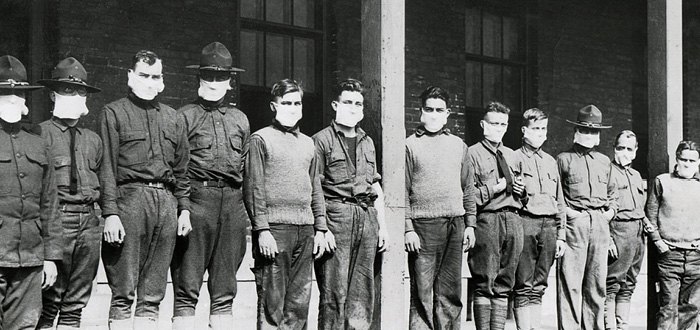As the spanish flu began to subside, churches began to meet again and a renewed interest in Bible study followed (per BSSB report in 1919 SBC annual). Most of us can understand why that would be the case as we meet on Zoom with others. We understand the need for face-to-face interaction with people. We miss the freedom and trust that only comes with in-person conversation.
In 1919, First Baptist Church of Ft. Worth, TX (FBCFW) hired a “church manager” to oversee their ongoing groups. They hired Arthur Flake who had been a field worker from 1909 to 1919 for the Baptist Sunday School Board (now Lifeway). Most point to this as the beginning of the minister of education role in the local church. This appears to have been a response to the renewed interest in Bible study groups. The pastor, J. Frank Norris, and Flake were paid the same salary. The value placed on this position may illustrate the recognized need for leading an effective ongoing Bible study ministry on the regathering side of the Spanish flu pandemic.
FBCFW reported that they had 3,000 members and 4,000 enrolled in ongoing Bible study groups (Sunday School) in 1919. By 1920, they became the largest Sunday School organization in the US. We should note that not all their groups met on Sunday or on campus. They focused on creating groups that sought people not connected to another church (lost people) and the numbers reported bear this out. This was counter to what was happening elsewhere. The renewed interest in Bible study groups came mostly from people who missed meeting with other believers during the Spanish Flu quarantine. The renewed focus was on community with other believers and the nurturing role Bible study groups played. Flake saw it differently and built groups that focused on reaching people who were not believers. After six months, Flake returned to the Baptist Sunday School Board.. Upon his return, Flake influenced Southern Baptist churches to focus on the reaching function of open Bible study groups, proposing a five step process for creating groups that did just that; the same process he perfected while at FBCFW (per Fuel the Fire by Chuck Kelley and Lifeway Legacy by Jimmy Draper).
Today, we are hearing the same renewed interest in Bible study groups. Some of that interest is being expressed by people who were not involved in a group prior to COVID. However, much of what we hear is the desire for Christian community which tends to focus on believers and the nurture element of Bible study. Many of those who ignored the reaching opportunity in 1919 (those focused primarily on nurturing believers) eventually turned to Flake in an effort to curb their decline (the potential for growth of intentional open groups is larger since the pool is all people and not only those already in the church).
Herein sits a warning and opportunity. A move toward community was already happening prior to COVID-19 (functionally closed groups that focused on nurturing the existing body), but now we have a renewed opportunity to reclaim the opening of that community to lost people. What we face may very well be the same opportunity faced by church leaders in 1919 with the same forked road sitting in front of us. Which path will we take?
Dwayne McCrary leads some teams that create ongoing Bible study resources at Lifeway including Explore the Bible (goExploreTheBible.com). He teaches two groups in his church (one for empty nesters and one for three year olds) and is an adjunct professor at Midwestern Baptist Theological Seminary in Kansas City.





Leave a Comment: